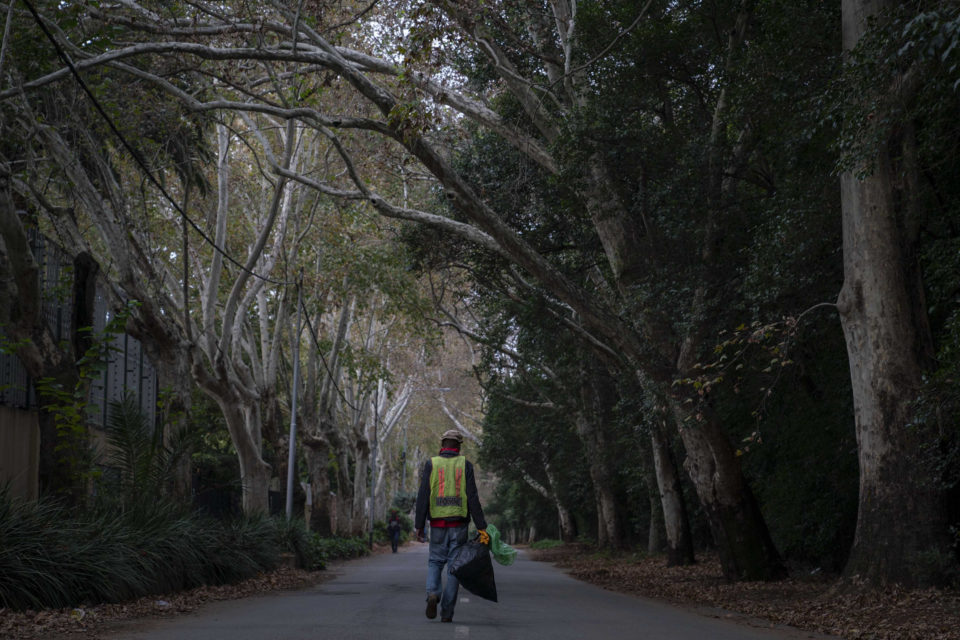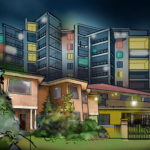Northern suburbs obstruct Joburg’s densification
Just, a newly formed bloc of mainly northern suburbs residents, is stalling policies intended to bring Joburg’s poorer residents closer to the city’s social and economic offerings.
Author:
12 April 2019

A new “civil action group” has emerged in Joburg’s northern suburbs in response to three new policies designed to overcome the city’s persistent apartheid spatial form.
Despite claims that it is not opposed to a more equitable city, Joburg United for a Sustainable Tomorrow (Just) is mounting a legal challenge against the city’s new land-use scheme and inclusionary housing policy, which the council has already passed. It claims to have been given an undertaking from “the DA on a high level” that the public participation process on an impending Nodal Review policy will be reopened.
“The problem with the three acts,” according to interim Just chairperson Rob Lage, is that the “average or ordinary man in the street” is unaware of their implications. The Nodal Review, for instance, “suddenly changes the way we are going to live, and will in time affect the values of our properties in a negative way,” he said.
Related article:
Lage told New Frame that this is down to the insufficient public participation conducted by the City of Joburg. He added that the intensity of public participation and communication must be “exceptionally high” in instances where policies will affect “the way in which you live and your property – I don’t think you can get more personal than that”.
The Nodal Review was open to public participation well before the first draft of the policy was published for public comment in February 2018, including an open call for suggestions in October 2016. In the two months following the 2018 publication of the draft, more than 74% of the comments came from either residents or their associations.
Open and closed
The period for submissions or objections regarding the policy, which passed through the mayoral committee in December 2018, has long since closed. Lage, however, said that Just has “an undertaking” from Mervyn Cirota – a high-ranking DA member of the council with whom the group claims to be “working very closely” – that public participation will be reopened.
“[There is] currently an agreement and [we are] waiting for an announcement from the DA that they will restart the public participation process on the Nodal Review,” said Lage, who claims that Just is made up of “a very large number” of concerned citizens and residents’ associations that is “growing all the time”.
Related article:
Speaking to New Frame, Cirota said that the “consultation process has been extended” to “open it as widely as possible … to bring in more views”. Until the policy is considered by the council, “amendments can and, where necessary, will be made”.
Joburg member of the mayoral committee for development planning Ruben Masango, himself a DA councillor, has denied that any further public participation will take place. Masango suggested that doing so would establish an impossible precedent. He has, however, withdrawn the Nodal Review from council processes for the time being.
This is to allow further engagements in the form of an “awareness and outreach programme”, said Masango, to make residents “aware of what the policy entails”.
Masango maintains that this decision was an internal one – to address “a lot of outcry” raised predominantly by DA ward councillors for northern Joburg suburbs during Nodal Review discussions at section 79 development planning committee meetings – rather than a result of the influence of affluent residents’ associations.
Litigation
The lack of public participation alleged by Lage will be one of three foundations on which Just is building its legal challenge of the city’s new land use scheme and inclusionary housing policy. Another is that the City of Joburg allegedly ignored issues that residents raised during the public participation phase.
One of these, according to Lage, concerned mental health. “If you increase [Joburg’s] densification, it can affect people’s health, and their mental health and mental stability, and leads to depression and that kind of thing,” he said.
Various research demonstrates that there are historical, socioeconomic and environmental imperatives for densifying Joburg.
In 2016, the Socio-Economic Rights Institute showed that peripheral housing contributes directly to the city’s unemployment, while the Urban Morphology and Complex Systems Institute predicts that, unless the city densifies, its carbon emissions owing to transport – already well above international best practice – will nearly double by 2040.
According to Masango, a handful of lawyers and town planners – who are misinforming residents about the likely outcomes of the three policies to “collect money to build a case to go to court for whatever reason” – are driving Just’s resistance to the policies. Gary Duke Attorneys is representing Just.


